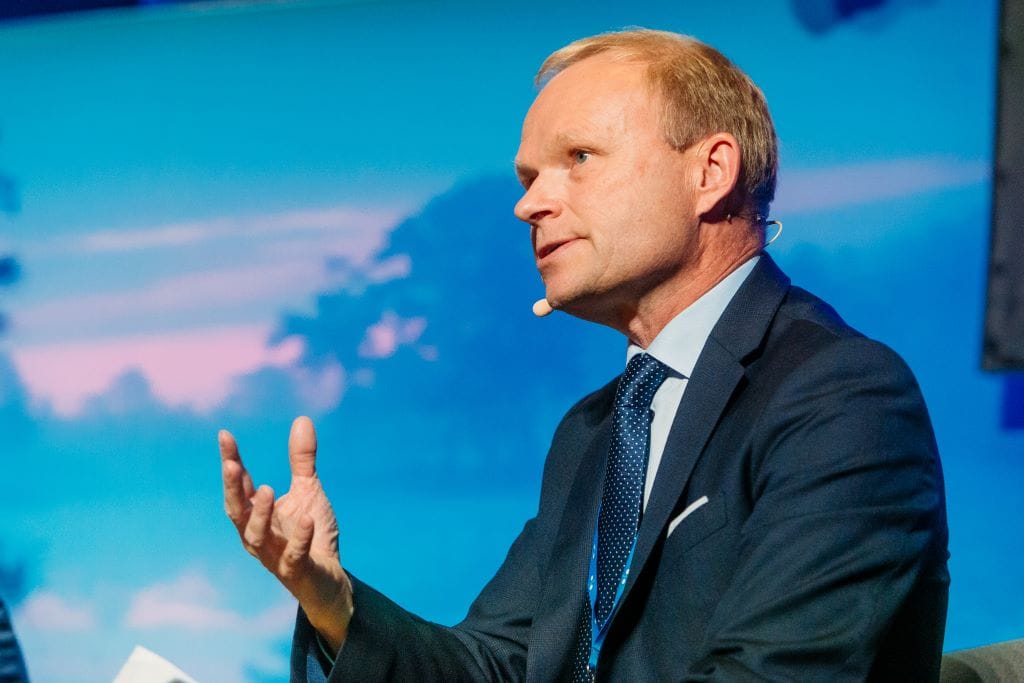Nokia Announced Domestic Manufacturing of Electronics Equipment for Fiber
The manufacturing of the company’s fiber-optic broadband electronics products will start in 2024.
Teralyn Whipple

WASHINGTON, August 3, 2023 – Nokia is set to announce the U.S.-based manufacturing of key electronic components for fiber-optic broadband networks on Thursday.
The announcement, which is set to be made with Vice President Kamala Harris and Commerce Secretary Gina Raimondo in Kenosha, Wisconsin, is specifically focused on providing U.S-manufactured electronics products and optical modules for use in the $42.5 billion Broadband Equity Access and Deployment program.
The Finland-based telecommunications company is partnering with Sanmina Corporation to manufacture products in Sanmina’s manufacturing facility in Kenosha. The announcement makes Nokia among the first telecom equipment manufacturers to announce that core electronic components of its fiber equipment will be made in America.
Requirements under the Infrastructure Investment and Jobs Act’s BEAD program state that program recipients must source at least 55 percent of their components by cost from the United States, either manufactured, produced, or mined in the country.
This requirement is part of President Joe Biden’s Made in America agenda which seeks to support the country’s manufacturing economy. The regulation will increase the requirement to 75 percent by 2029, according to Biden.
Manufacturing to begin as soon as 2024 on a range of core products
The manufacturing of the company’s fiber-optic broadband electronics products will start in 2024, according to Nokia. Production is expected to bring up to 200 new jobs to Wisconsin’s state. Nokia said it will be able to supply its products and services to critical BEAD projects.
Nokia CEO Pekka Lundmark said that the company is “committed to connecting people and communities. However, many Americans still lack adequate connectivity, leaving them at a disadvantage when it comes to accessing work, education and healthcare. Programs like BEAD can change this.”
“By bringing the manufacturing of our fiber-optic broadband access products to the U.S., BEAD participants will be able to work with us to bridge the digital divide. We look forward to bringing more Americans online,” Lundmark continued.
Jure Sola, chairman and CEO of Sanmina, said that the company is “excited to partner with Nokia to support their efforts to build robust and resilient high-tech fiber broadband networks that will connect people and societies. By continuing to invest in domestic manufacturing, Nokia and Sanmina will be able to help create a sustainable future for the industry, one that drives job growth and ensures the fiber products produced embody the quality and excellence associated with American manufacturing.”
The announcement comes a week after Biden’s “Made in America Week” that celebrated supporting American works and domestic businesses. The Biden Administration’s Investing in America initiative is investing billions of dollars into the United States’ domestic manufacturing. Congress passed the Inflation Reduction Act and CHIPS and Science Act which invest in America’s electric vehicle and green energy plans and semiconductor manufacturing.
Biden ran his presidential election campaign on his initiative to move companies onshore, defend American supply chains, and create more jobs. According to the White House, the agenda has “already attracted hundreds of billions of dollars in private investment and created nearly 800,000 new manufacturing jobs in everything from semiconductors and electric car batteries to clean energy technology and more.”
Industry experts have called on the NTIA to provide clear guidelines on the implication of Buy America requirements for BEAD projects, claiming that the requirements spread uncertainty surrounding the impact of the funds due to the increased complexity of an already complicated supply chain. The NTIA has already issued waivers for its $1 billion Enabling Middle Mile Broadband Infrastructure program to exempt certain construction materials from the requirement list. NTIA head Alan Davidson, however, indicated that getting such exceptions for BEAD-funded projects would be very difficult.








Member discussion